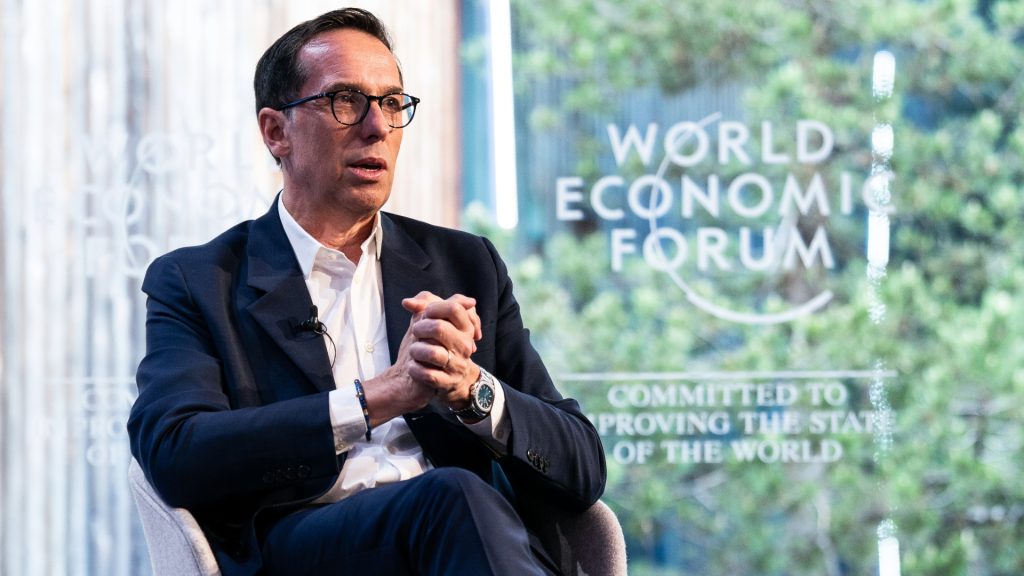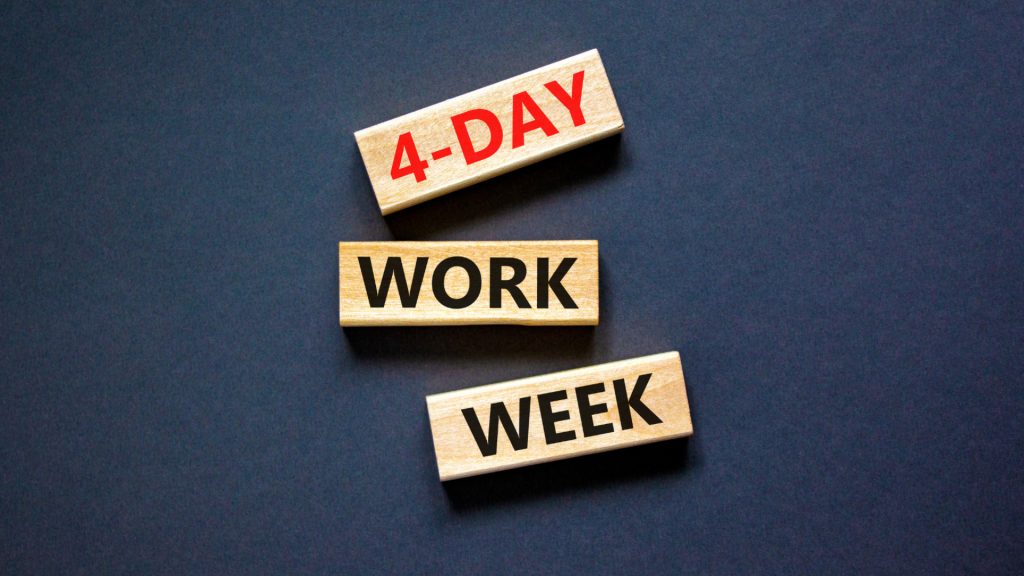Is it possible that remote workers are doing more harm than good – not just to themselves, but to their employers – by working exclusively from home? If you were to ask Nicolas Hieronimus, the answer to that question would be a resounding ‘yes’ – just wait until you see what he said at the 2024 World Economic Forum!
L’Oreal’s Resilient Campaign To Bring Workers Back During COVID-19
In October 2020, at the heart of the COVID-19 pandemic, most employees nationwide were still working from home – whether they wanted to or not. Even companies that wanted employees back in the office struggled to overcome the guidelines enforced by the CDC.

That didn’t stop L’Oreal – one of the first companies to welcome employees back to the office. Just like that, thousands of L’Oreal employees were working a hybrid schedule that involved going into the office several days per week, and working from home several days per week.
President: “The World Of Beauty Is Not A Remote Or Virtual One“
The company firmly believed that in-person collaboration and on-site face-time are key to productivity and teamwork. While working from home might make things easier, it wasn’t necessarily making them better – and, in fact, was hurting companies and employees.

“The world of beauty is not a remote or virtual one,” said Stephane Rinderknech – the former President and CEO of L’Oreal USA – in a May 2020 memo to employees. While Rinderknech is no longer with the company, L’Oreal is still very much opposed to remote work becoming the norm.
Do Remote Workers Lack Attachment, Passion, and Creativity?
Today, L’Oreal’s new CEO – Nicolas Hieronimus – runs the company on similar values. The 60-year-old French businessman recently attended the World Economic Forum (WEF) – which took place between January 15 and 19 in Davos, Switzerland – and provided this gem of a quote:

“I know so many employees of so many other companies than L’Oreal that have been working from home for months, that have absolutely no attachment, no passion, no creativity,” he said at the WEF last week – adding that it might even be bad for the employee’s mental health.
Who Is Nicolas Hieronimus?
Nicolas Hieronimus is the current CEO of L’Oreal – the world’s largest cosmetics company. He took over in 2021, but has spent more than three decades with the company – dating back to 1987, when he joined as a project manager for their Garnier line.

He was responsible for creating the Fructis haircare line in the 1990s, while also playing a major role in the launches of Dermo-Expertise, Men Expert, Inoa, and other iconic collections through the years. He was appointed a Knight of the Legion of Honour in 2016.
In-Office Work Is About Serendipity, Meeting People, and Collaboration
Looking back at L’Oreal’s handling of the COVID era, Hieronimus (who was Deputy CEO in charge of Divisions at the time) says they didn’t do what a lot of other companies did – alluding to all the companies who relied on remote workers until they realized it wasn’t working.

“I think it’s vital to be in the office. It’s about serendipity. It’s about meeting people. And it’s also more fair to workers because we have lots of young people who have small houses or have young kids and working from home is actually very bad for their mental health,” he added at the WEF.
L’Oreal Employees Spend Three Days In The Office
According to Telegraph, L’Oreal employees are currently required to spend at least three days in the office every week – but they’re allowed to work at home the other two days, if they choose to. Hieronimus also encourages employees to show up on Fridays, as opposed to Wednesdays.

At the end of the day, Hieronimus is committed to a culture that stresses the importance of consistent office presence – something he believes is the key to collaboration. “It’s vital for the company, and it’s vital for the employees. It’s also fair to the blue collar workers that work every day in the factory,” he said.
Does Hieronimus See A Four-Day Workweek Approaching?
Adding to his analysis of the working world today, Hieronimus was asked about the industry potentially shifting to a four-day workweek instead of a five-day workweek. With the rise of AI, many experts believe a transition is coming – and it won’t affect the employee’s pay.

“Rather than talking about four-day weeks [we have] to have people working together. We’re a creative industry,” Hieronimus responded. It’s clear that the industry is changing, and it’s clear that CEOs and employees must evolve with it, but one thing’s for sure – L’Oreal is committed to sticking to the basics.
Many Top CEOs Are Favoring a Hybrid Workweek
Nicolas Hieronimus isn’t alone with his hybrid approach to the workweek – in fact, it’s quickly becoming the norm in today’s society. Most CEOs of top-level companies are favoring the benefits of in-person collaboration, but understand the appeal of being able to work from home in at least some capacity.

Even companies who once heavily supported remote work – such as Zoom and Meta – are now switching their attitude and evolving their policies to promote a more hybrid schedule. CEOs know that this is what the future of work looks like, so they’re following the herd.
Zoom Quickly Changed Its Stance On Remote Workers
Zoom – a company that helped make remote work possible – was once one of the biggest enablers of remote work, but even they aren’t giving up on in-office work. In August 2023, they started requiring employees to work in the office at least two days per week, if they live within 50 miles of one of their 12 office locations.

‘We believe that a structured hybrid approach – meaning employees that live near an office need to be onsite two days a week to interact with their teams – is most effective for Zoom,” the company said, adding that it helps them better ‘support [their] global customers.’
Elon Musk Believes Remote Workers Pretend To Work (digital presenteeism)
Elon Musk has been one of the biggest critics of remote work, and he doesn’t seem to be changing his stance any time soon. In 2022, he sent a memo to Tesla employees that denounced remote work as ‘unacceptable’ and suggested that remote workers spend most of their time pretending to work.

It’s an idea that’s being dubbed ‘digital presenteeism’ and Musk isn’t the only one to worried about it – many CEOs believe remote workers ‘pretend to work’ throughout the day by doing meaningless or unnecessary tasks. In fact, some studies suggest they waste an extra hour of work every day!
New Balance Employees Work In-Office Tuesday Through Thursday
While speaking to Fortune at the Fortune CEO Initiative conference in October 2023, Joe Preston – who was named the CEO of New Balance in 2019 – discussed his company’s three-day policy, where employees are required to work in the office on Tuesdays, Wednesdays, and Thursdays.

While he believes working in the office is important, he was clear that collaboration didn’t always need to happen in person. “You don’t need to be in the office to be entirely creative,” he said – adding that a hybrid model works best, especially among the younger population.
Research Says Three Days Is Optimum For Getting Noticed
So, the real question – are these CEOs onto something, or is there any truth to what they’re saying? Well, recent research suggests there’s no difference in performance or promotion rates between workers who follow a hybrid schedule and those who are in the office five days every week.

One economist argued that three days in the office is more than enough to prove yourself to upper management – adding that ‘you’re not out of sight and forgotten about.’ Of course, that all comes down to how employees are using those hours in the office and, most importantly, at home.
Many Employees View Hybrid Workweeks As A Perk
For all the companies out there still on the fence about a hybrid workweek, here’s a statistic that might entice you – most employees view working from home two days per week as a perk, equivalent to a 6% raise. If you want to attract better employees, a hybrid approach is ideal.

On the flip side, companies that require employees to work in the office five days every week will need to find another way of compensating employees – either with a raise or another perk. Companies that don’t evolve risk losing quality and valuable employees.
Surprisingly, Even Gen Z Wants To Avoid Remote Work
You would think the younger generation would be more interested in working remotely than in the office, but that’s simply not true. In fact, one study (which polled 3,500 working Americans) found that Gen Z (those born between 1996 and 2010) wants to be in the office more than anyone.

“Generationally, a larger majority of Gen Z adults do most of their work in person compared with their older counterparts, and this young cohort also shows the strongest overall preference for working in an office,” the study concluded – adding that ‘productivity’ was the most common reason why so many Gen Z workers prefer the in-office treatment.






